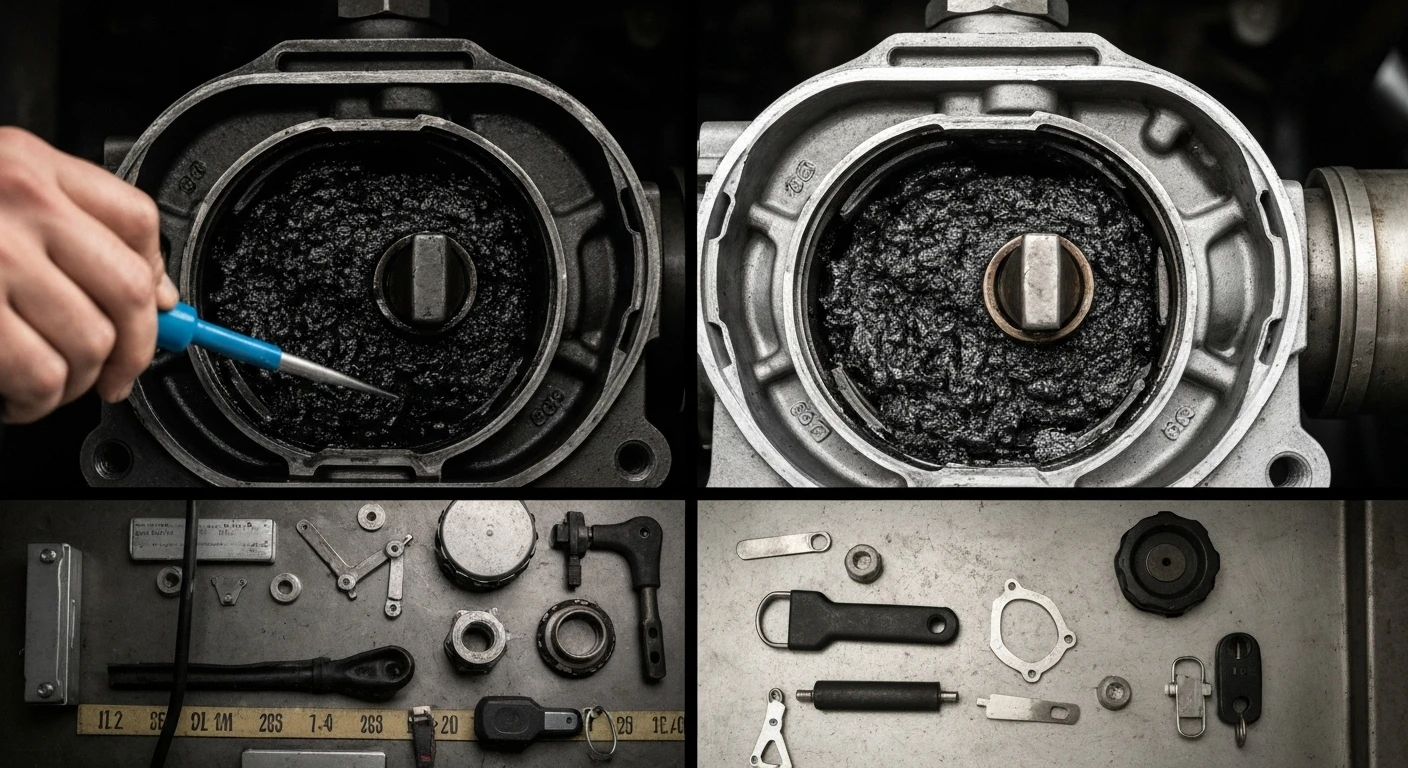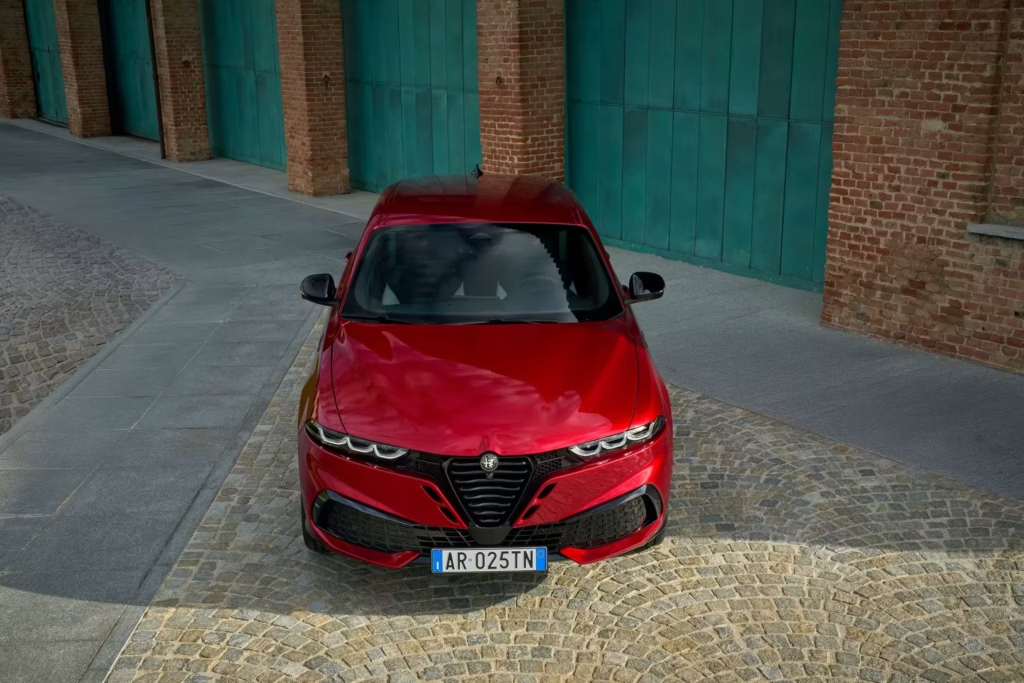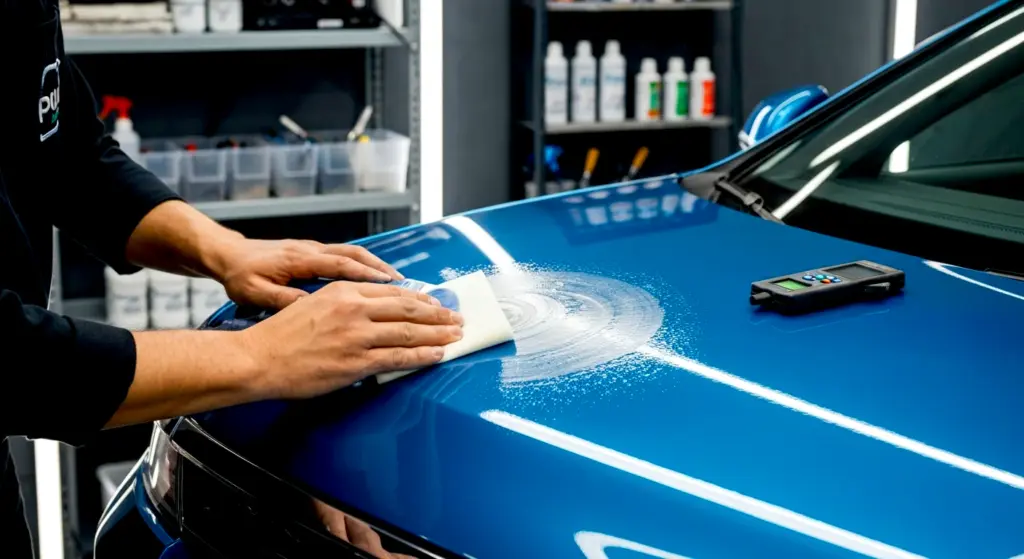The longevity and flawless performance of your vehicle depend on a series of care routines, and one of the most crucial is preventing engine carbon buildup. This phenomenon, though often overlooked, can turn into a mechanical nightmare, directly impacting the power, fuel consumption, and lifespan of your car’s most vital components. But don’t worry: with the right information and practices, you can protect your car’s heart.
The Silent Enemy: Understanding Engine Carbon Buildup
Engine carbon buildup is the accumulation of carbon deposits in critical parts of the combustion system, such as valves, pistons, and the combustion chamber itself. Imagine your engine as a high-performance athlete; these deposits are like plaques clogging its veins, hindering flow and compromising its ability to perform at its best.
The combustion process, while essential, is not 100% clean. It naturally generates byproducts, including carbon residues. However, when adverse factors accumulate, the amount of these residues becomes excessive, leading to the formation of a harmful, solid layer.
“Choosing the correct lubricating oil and changing it on time are fundamental for internal engine cleanliness and deposit prevention, including carbon. Using the wrong oil or ignoring replacement deadlines can drastically accelerate carbonization and lead to serious problems and unexpected costs.”
But what really causes this dangerous accumulation?
- Fuel Quality: Low-octane, adulterated, or impure fuels tend to burn incompletely. This poor combustion is the perfect recipe for generating more carbon residue.
- Driving Style and Short Trips: Urban traffic with its constant stop-and-go and very short trips are major culprits. In these scenarios, the engine rarely reaches its optimal operating temperature. When the engine runs cold, combustion is less efficient, and the vaporization of fuels and oils is incomplete, depositing more carbon.
- Neglected Maintenance: The lack of a strict maintenance schedule is an open invitation to carbon buildup. Flat tires, dirty filters (air, fuel, oil), worn spark plugs, and expired lubricating oil are factors that unbalance the air-fuel mixture and burning efficiency.
- Underlying Mechanical Issues: In some cases, carbon buildup can be a symptom of a larger problem. Faulty fuel injectors that do not spray correctly, or worn piston rings or valve seals that allow excessive oil to pass into the combustion chamber, are examples of failures that intensify the problem.
Warning Signs: Is Your Engine Asking for Help?
Your car, like any machine, communicates when something is wrong. Paying attention to the signs is crucial for early diagnosis and avoiding greater damage. The main indicators of a carbonized engine include:
Noticeable Loss of Power and Performance: You know that feeling when the car feels “sluggish”? Difficulty accelerating, slow recovery, or visibly lower performance on inclines can be signs that carbon deposits are compromising engine compression and the air/fuel flow.
Unexplained Increase in Fuel Consumption: If you’ve noticed you’re refueling more often without changing your driving habits, carbon buildup might be the culprit. Deposits interfere with efficient burning, making the engine require more fuel to produce the same power.
Rough and Unstable Idle: A carbonized engine may show RPM fluctuations at idle, excessive vibration, or even stalling. This happens because dirty valves and injectors cannot maintain a consistent mixture flow.
Difficulty Starting When Cold: On colder days, a carbonized engine might take longer to “catch.” Deposits can affect valve sealing or spark efficiency.
Strange Noises: Sounds like “pinging” (pre-ignition or detonation) are alarming. Incandescent carbon in the combustion chamber can ignite the air-fuel mixture before the spark plug fires, creating these damaging metallic noises.
Excessive or Dark Smoke Emission: Dark or foul-smelling smoke coming from the exhaust indicates incomplete combustion, a classic symptom of carbonization and a warning for both the environment and your wallet.
The Definitive Guide: 10 Essential Tips to Prevent Carbon Buildup
Prevention is always the best approach when it comes to your car’s health. Adopting a routine of care and driving consciously can save you a lot of money and prevent future headaches. Here are 10 fundamental tips:
- Fuel Up with Quality and Detergent Gasoline: The source of your fuel makes all the difference. Prioritize trusted gas stations and, whenever possible, use detergent fuels. They contain detergents and dispersants that help clean the injection system and prevent the formation of carbon deposits. Good quality fuel promotes a more complete and clean burn.
- Avoid Extremely Short and Frequent Trips: If your routine involves many short journeys where the engine barely warms up, carbon buildup is almost inevitable. Try, at least once a week, to take a longer trip (on the highway, if possible) that allows the engine to reach and maintain its ideal operating temperature for a period. This helps burn off accumulated deposits.
- Strictly Adhere to Oil and Filter Changes: Lubricating oil not only reduces friction but also helps clean the engine. Always use the oil type and filter specified by your vehicle’s manufacturer and respect the change intervals, which can be based on mileage or time. Negligence here can lead to sludge buildup and, consequently, carbon. For more details on the importance of oil, check out our article on “Wrong Oil in the Car Engine: What Are the Consequences and Unexpected Costs?”.
- Keep Spark Plugs in Good Condition: Worn or incorrect spark plugs produce a weak spark, compromising fuel combustion and generating more residue. Check and replace spark plugs according to the owner’s manual. An efficient spark is synonymous with clean combustion.
- Injector Cleaning and Inspection: Dirty fuel injectors spray fuel unevenly, creating larger droplets that do not burn completely. This not only increases consumption but also encourages carbon buildup. Periodic cleaning (preferably by a professional) is crucial.
- Regular Replacement of Air and Fuel Filters: A dirty air filter restricts airflow to the engine, unbalancing the air-fuel mixture. A clogged fuel filter prevents the proper flow of clean fuel. Both directly impact combustion efficiency and, if neglected, accelerate carbonization. The importance of correctly disposing of parts like oil filters is also an important topic, as shown in “Used Oil Filter is Worth More Than Trash; Understand How It Becomes Raw Material!”.
- Practice Conscious and Progressive Driving: Avoid sudden acceleration and braking. Smooth and progressive driving, maintaining stable RPMs and avoiding “stretching” the engine too much in low gears or subjecting it to heavy loads at very low RPMs, promotes more complete burning and reduces stress on internal components.
- Perform Safe “Stretches” on Highways: Occasionally, if traffic and safety conditions allow, drive the car at slightly higher RPMs (without exaggerating and always respecting vehicle and road limits) for a few minutes. This helps raise the internal temperature of the engine and exhaust system, aiding in the burning of incipient carbon deposits.
- Monitor and Maintain the PCV System (Positive Crankcase Ventilation): The PCV system is responsible for recirculating crankcase gases back into the intake, where they are burned. If the PCV valve is clogged or faulty, these gases can become trapped, causing more deposits and even oil leaks, which contribute to carbonization. Consult your mechanic to check its function periodically.
- Consider Using Quality Cleaning Additives: There are fuel and oil additives on the market that promise to clean the injection system and decarbonize the engine. Opt for reputable brands and consult a trusted mechanic to find out which is most suitable for your vehicle and the frequency of use. They can be a good complement to preventive maintenance, especially for those who drive frequently in urban areas.
To ensure your vehicle is always in ideal condition, not just against carbonization but for daily use or travel, preventive maintenance is your best ally. In our guide on “Holiday on the Road: Maintenance Tips for Traveling with Peace of Mind”, you will find more valuable information to keep your car always ready.
What to Do If the Engine Is Already Carbonized?
If, despite your preventive efforts, you notice signs of a carbonized engine, immediate action is to seek a qualified professional. Do not try home remedies that might worsen the problem. Specialized mechanics have the tools and knowledge to diagnose the extent of the carbonization and recommend the most appropriate treatment.
Procedures can range from chemical decarbonization (application of specific products to the intake system or directly into the combustion chamber) to more invasive methods that require dismantling parts of the engine for manual cleaning. The choice of technique will depend on the degree of carbon accumulation and the type of engine.
Taking care of your car’s engine is investing in your safety, fuel economy, and the value of your asset. By following these 10 essential tips, you will ensure that your vehicle’s heart beats strong and clean for many, many miles to come.
Author: Fabio Isidoro
Founder and editor-in-chief of Canal Carro, he dedicates himself to exploring the automotive universe with depth and passion. A car and technology enthusiast, he produces technical content and in-depth analyses of national and international vehicles, combining quality information with a critical eye for the public.









